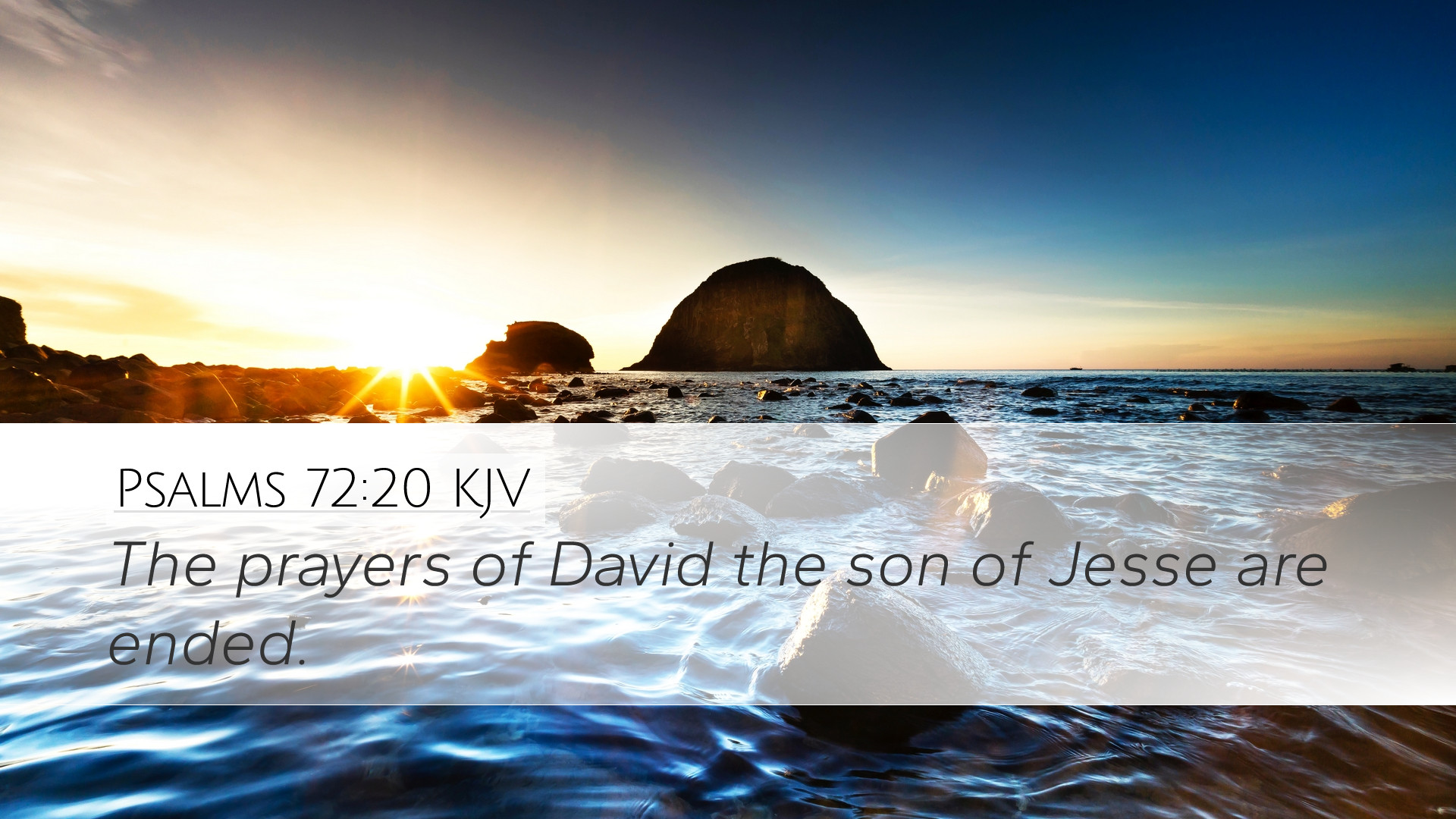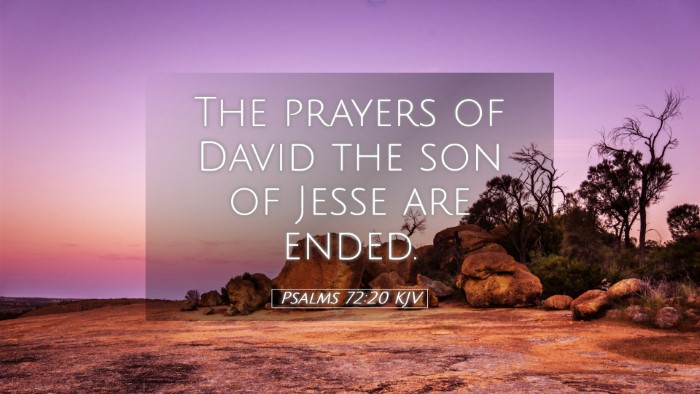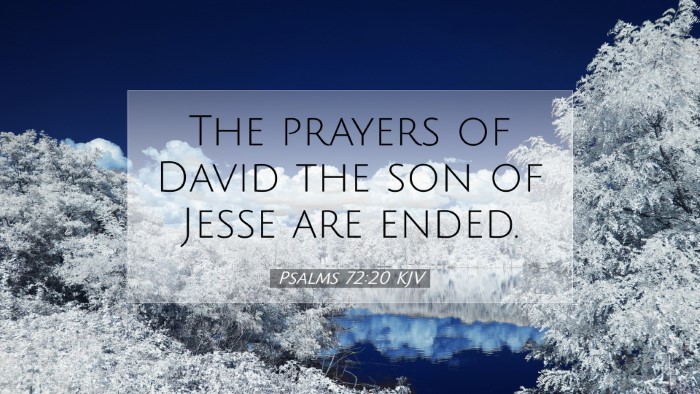Commentary on Psalms 72:20
Bible Verse: Psalms 72:20 - "The prayers of David the son of Jesse are ended."
Introduction
Psalms 72 is attributed to Solomon, reflecting upon his father David's vision of a righteous kingdom. The closing verse succinctly marks the conclusion of this Psalm, highlighting the interconnectedness of David's prayers with the theme of justice, righteousness, and the anticipated reign of the Messiah.
Context and Structure
Understanding this verse requires discerning the structure of the Psalms. This Psalm is part of the royal collection, emphasizing the ideals of a king’s reign aligned with God's covenant promises. This final verse acts as a capstone, illustrating the end of a significant prayer and contemplation on the nature of effective kingdom leadership.
Significance of David's Prayers
- Reflective Nature: The prayers symbolize not only personal petitions but also a collective longing for divine intervention in governance.
- Intercessory Role: David's prayers serve as an intercession for unfulfilled promises regarding the peace and prosperity of God’s people.
- Legacy of Prayer: The ending highlights the enduring influence of David’s prayers. They encapsulate a theology of kingship that does not merely pertain to Solomon but extends beyond to encompass the divine Messiah, illustrating God's plan throughout generations.
Insights from Public Domain Commentaries
Matthew Henry
Henry observes that the concluding phrase, "are ended," signifies both completion and fulfillment. He emphasizes that David's prayers were not in vain but directed toward a righteous outcome. The opening and closing of the Psalm frame a meditation on God's governance:
- Completeness: Henry argues that the end of David’s prayers indicates the fullness of God's revelation through the lineage of David. The fulfillment of these prayers is ultimately highlighted in the dynasty that leads to Christ.
- Model for Prayer: He suggests that David’s prayers encapsulate the essence of petition combined with praise, reflecting the ideal relationship between God and His anointed leaders.
Albert Barnes
Barnes points out the liturgical importance of this verse, suggesting that it served as a formal conclusion to a royal psalm used in worship. He emphasizes the historical context of the verses leading up to 20, which speak about the ideal king:
- Covenantal Framework: Barnes emphasizes the context of God's covenant with David, wherein this prayer encapsulates a hope for a king who will rule in justice and mercy, setting a standard for all rulers.
- Anticipation of Messianic Fulfillment: He interprets this verse as a prophetic pointer towards the anticipated Messiah whose reign encompasses everything that David prayed for, highlighting the continuity of God's promises.
Adam Clarke
Clarke provides a theological reflection, noting the structure and purpose behind the psalm. His commentary highlights the peace and righteousness sought in David’s petitions:
- End of an Era: Clarke suggests that David’s prayers mark a transition from the character of David's individual struggles to a broader appeal for a godly ruler, symbolizing the end of David’s personal intercessions.
- Final Reflections: The ending, he notes, can also encourage believers to consider what is left in their legacy of prayer. The notion that prayers can endure beyond their immediate context reminds us of their lasting spiritual impact.
Theological Implications
This closing verse fosters a deeper understanding of the psalmist's role and the significance of prayer in community and leadership:
- Role of Prayer in Leadership: The passage emphasizes that effective leadership requires prayerful consideration, aligning earthly kingship with divine governance.
- Hope and Expectation: The concluding prayers reflect a deep-seated hope for God’s intervention, readily applicable to congregational prayers today seeking justice and righteousness in society.
- Legacy of Faith: It prompts theological reflection on how the prayers and spiritual legacies of leaders affect future generations, inspiring contemporary believers to engage in prayerful leadership.
Conclusion
Psalms 72:20 serves as a poignant reminder of the enduring power of prayer in God's plan. This verse encapsulates the essence of David's heart, serving both as an end and a new beginning for the hopes of God's people. The commentators collectively highlight the significance of prayer in the life of a leader while pointing to the ultimate fulfillment of David’s prayers in Christ. As the church contemplates this verse, it is called to recognize the profound impact of prayer and its role in shaping both personal and communal faith journeys.


